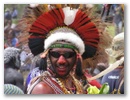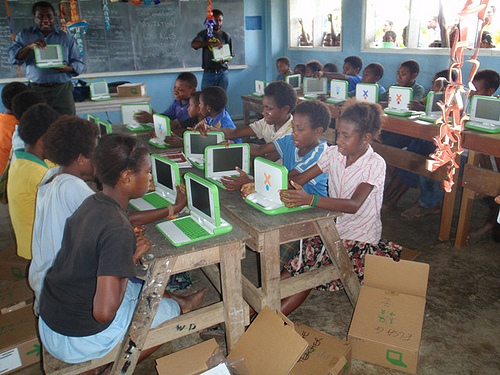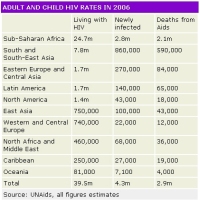Why Do Language Survey?
Archive: October 2008
Juliann
Spencer, one member of our socio-linguistic
team writes:
“Imagine that you are alone on an island, faint with hunger. In a few more days you will die. Ironically, this island upon which you are dying is extraordinarily fertile. Herds of fat, edible beasts roam all around you. Everywhere you look there are forests of trees bearing delectable fruits. And, to top it off, there is a fully stocked Wal-Mart Supercenter less than 100 yards from where you are lying weakly on the ground. What’s the catch? How did you ever reach such a state of starvation with so much food all around you? Well, unfortunately for you, the edible beasts are capable of running over 60 miles per hour and you have no tools with which to catch them; the delectable fruits grow 100 feet off the ground, supported by slick, oily trunks with no branches; and the Wal-Mart Supercenter is on the other side of a 1,000–foot canyon. Looks like you’re out of luck.”
 ... they are unable to access it (God's
Word), making it as useless to them as a grocery store on the other
side of the Grand Canyon.
... they are unable to access it (God's
Word), making it as useless to them as a grocery store on the other
side of the Grand Canyon.  — Juliann Spencer
— Juliann Spencer

“Sadly,
many people in Papua New Guinea are in precisely that situation, not
physically but spiritually. There are many language groups that DO
have God’s Word in their own language but, for a variety of reasons,
they are unable to access it, making it as useless to them as a
grocery store on the other side of the Grand Canyon. Here are a few
factors that often keep people from eating the Bread of Life:
- Literacy: Many
people do not know how to read at all. Even if they are able to
read in Tok Pisin (the language of wider communication), that
does not guarantee that they will be able to read in their own
language, especially if the two have very different alphabets.
- Dialect: Most of
the 800 languages in PNG are further divided into distinct
dialects. If the translation was done in a different dialect,
people may have trouble understanding it.
- Distribution: Sometimes people simply don’t have the knowledge and/or resources necessary to obtain a copy of the Bible. Maybe they can’t afford to make the trip over the mountain or across the river to buy one . . . or maybe they don’t even know that that’s an option.
“So how can we keep these people from starving? That’s exactly what the survey team has been asking over the past few months. We’ve recently developed some questionnaires designed to help us figure out why people are not using the Bible in their own language. We plan to use these questionnaires to survey language areas where we suspect the Bible is not being used, and then give the information we collect to our SIL colleagues who specialize in “Scripture Use.” In October, we’ll spend a few weeks testing out our questionnaires in the nearby Benabena language.” — Juliann
Callers and Visitors at Our House
Somedays we can't get to our work, because the Lord wants us to
minister to others instead. We never know who will just 'drop in' on
us at our house.
... but I have called you friends, for all things that I have heard from My Father I have made known to you. — John 15:15
I used to think that I had to run to faraway places to minister to people. Now I see that the Lord sends His harvest my way. I simply need to share what has already been taught to me in friendship.
Insights into Papua New Guinea Life
 Here is the
entrance to our photographic favorites. Come journey to the "land of
the unexpected" as seen in our eyes after 20 years of ministry in this
fair country.
Here is the
entrance to our photographic favorites. Come journey to the "land of
the unexpected" as seen in our eyes after 20 years of ministry in this
fair country.
See
More from Years 2007 to 2005»
Higher Resolution Photos are freely available upon request. Just email and let us know what you would like.
Is the One Laptop Per Child (OLPC) Coming Our Way?

Students at Dreikikir Village, near Wewak, Papua New Guinea
Well, hopefully by now you have heard of the ambitious and con- troversial third-world children's education project called "The One Laptop Per Child". This movement has made great strides in Peru and Uruguay, Nepal and Mongolia. Recently there were launches in population-rich India and major rollouts in Rwanda and Ethiopia. The Pacific has not been passed over either, and this year we have seen village-based school trials in Gaire and Dreikikir villages, mostly sponsored by the Secretariat for the Pacific Community (SPC).
According to the "National" (PNG) newspaper:
“
SCHOOLS
throughout
the country will be introduced to the “One Laptop Per Child”
programme which is aimed at enhancing students’ learning
capacity, Deputy Prime Minister and Minister for Lands and
“
Dr
Temu said PNG would be one of the beneficiaries of this “exciting
yet simple and sustainable” hardware project after formal
discussions were held with two experts from the Massachusetts
Institute of Technology in the
“
Dr
Temu
told journalists at
I (Brian) have
actually flown to Madang to intercept members of OLPC Oceania and
discussed the possibilities of expanding their educational horizons to
not only include majority languages, such as English, Melanesian
Pidgin, and Motu, but all the many vernacular languages in this
country. The dream for some in SIL is that local level teachers could
be creating their own minority language materials that would be
instantly available for their students at the village classroom level.
In the past just the cost and logistics of printing limited run paper
based books was enormous and impractical. If the OLPC "vision" were
in place in this country, our SIL Literacy efforts might accelerate
ten-fold.
 If the OLPC "vision" were in place
in this country, our (vernacular) Literacy efforts might
accelerate ten-fold.
If the OLPC "vision" were in place
in this country, our (vernacular) Literacy efforts might
accelerate ten-fold. 
— Brian Chapaitis
Continue to pray... for wisdom that SIL and Wycliffe could engage in a meaningful partnership to make the OLPC movement a great success in Papua New Guinea. If they were to succeed, then our work in Language-Based development would greatly accelerate in this country.
Wikipedia One Laptop Per Child Article »
Papua New Guinea School Trial »
Keep my commandments and live, And my teaching as the apple of your eye. — Proverbs 7:2
So What Does Helen Really Do?
Helen
has
been way too busy at our clinic. Pray for plenty of
restful, rejuvenating moments in the midst of all that
medical work. Since her return in January she has been out
of PNG twice on medical evacuations including a recent
trip in which she accompanied a patient back to the US.
Praise the Lord for endurance and strength during these
trips.
She is also working to get all of our clinic staff up to
date and certified in CPR. Pray for the teaching, learning
and testing process which has been frequently interrupted
by her out-of-country travels.
So What Does Brian Do Anyway?
Brian's work, being the quintessential techie, is a little harder to explain. Think computers and you are part-way there. Think about the difficulty of representing languages on a computer and perhaps your "eyes start to glaze over" because the English speaking world basically does not have any problems with modern computers. The assumption is that the rest of the world is the same. Not true. Brian is part of a world-wide team creating our fourth generation software to facilitate the analysis of formerly unwritten languages.
 One aspect of the
work is helping the Unicode Consortium not forget the
minority languages with unusual needs in Papua New Guinea.
Another aspect is providing feedback to world developers
creating the software that renders complex scripts around
the world, particularly in Asia. Read More »
One aspect of the
work is helping the Unicode Consortium not forget the
minority languages with unusual needs in Papua New Guinea.
Another aspect is providing feedback to world developers
creating the software that renders complex scripts around
the world, particularly in Asia. Read More »
Fast link to short video on SIL Graphite technology. See Video »
After these things I looked, and behold, a great multitude which no one could count, from every nation and all tribes and peoples and tongues, standing before the throne and before the Lamb, clothed in white robes, and palm branches were in their hands;
— Revelation 7:9
